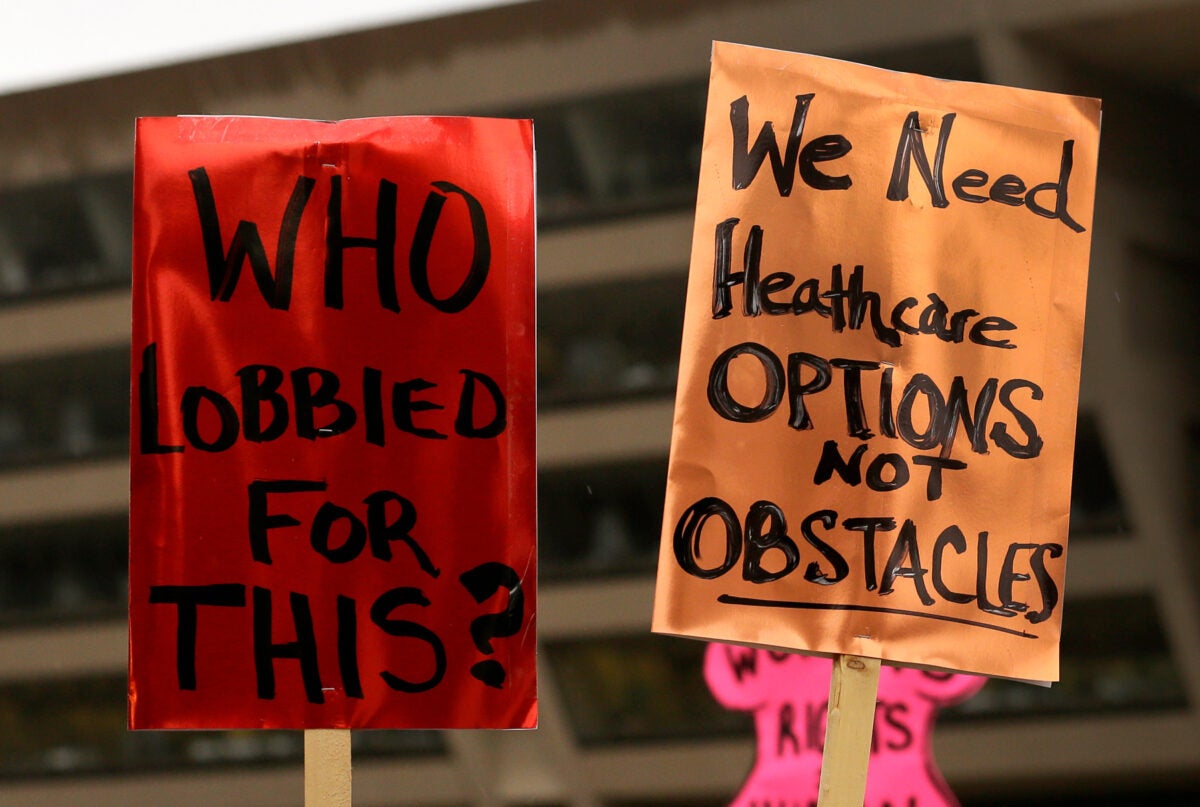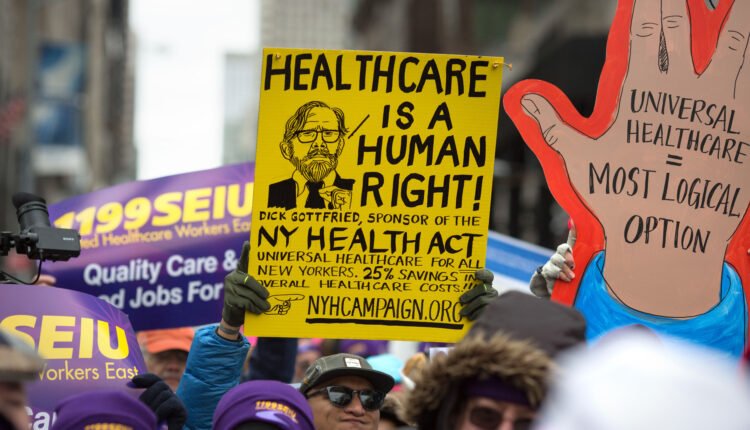Healthcare is a human right that acknowledges the legal obligation of states to provide timely, accessible, and affordable healthcare for all individuals. The concept of healthcare as a human right has been a topic of debate and discussion worldwide.
While some argue that healthcare is a privilege, others firmly believe that it is a basic human right. Recognizing healthcare as a human right means that governments have a legal and ethical responsibility to ensure that all individuals have access to timely, acceptable, and affordable healthcare services.
This perspective emphasizes the importance of healthcare in promoting well-being, preventing illness, and addressing health disparities. We will delve into the arguments surrounding healthcare as a human right and explore its implications for society.
Why Accessible Healthcare Is A Human Right
Acknowledging health as a human right recognizes a legal obligation on states to ensure access to timely, acceptable, and affordable healthcare for all individuals. The Universal Declaration of Human Rights explicitly states that everyone has the right to a standard of living adequate for the health and well-being of themselves and their family, including healthcare. This recognition stems from the understanding that healthcare is not just a privilege or a commodity, but a moral obligation that societies and governments must fulfill.
Accessible healthcare has significant economic and social impact. When individuals have access to healthcare services, they are more likely to be productive members of society and contribute to economic growth. Additionally, accessible healthcare reduces health disparities and improves overall population health, leading to a healthier and more prosperous society.
Therefore, ensuring healthcare as a human right is not only a matter of social justice, but also a pragmatic approach to achieving a healthier and more equitable society. By upholding healthcare as a fundamental human right, we can work towards creating a world where everyone has the opportunity to live a healthy and fulfilling life.
The Consequences Of Denying Healthcare As A Right
Acknowledging health as a human right recognizes a legal obligation on states to ensure access to timely, acceptable, and affordable health care. Violations of human rights in healthcare undermine the principles of equality, dignity, and non-discrimination. Core components of the right to health include availability, accessibility, acceptability, and quality of healthcare services.
The World Health Organization plays a crucial role in promoting health rights globally, advocating for universal healthcare coverage and addressing health inequalities. The enjoyment of the highest attainable standard of health is a fundamental right of every human being, without any distinction. It requires collective responsibility to ensure equitable access to healthcare and address social determinants of health.
While there may be debates on whether healthcare should be considered a human right or a privilege, it is important to prioritize the needs and well-being of individuals, especially the most vulnerable populations. Only then can we achieve a healthier world for all.
Debating Privilege Vs Right: Is Healthcare A Human Right Or Privilege?
Acknowledging health as a human right recognizes a legal obligation on states to ensure access to timely, acceptable, and affordable health care. The enjoyment of the highest attainable standard of health is one of the fundamental rights of every human being without distinction of race. However, there are those who argue that considering healthcare a human right is unhelpful and impractical in the context of limited resources and the need for rationing and sharing. Despite these differing perspectives, it is crucial to find practical and ethical solutions to ensure equitable access to healthcare for all. This may involve implementing social measures such as sufficient food, clean water, adequate housing, and working conditions, in addition to medical care. Ultimately, the goal should be to create a healthier world where healthcare is accessible to everyone.

Credit: harvardpublichealth.org
Recognizing Healthcare As A Human Right: Legal And Moral Implications
Acknowledging health as a human right recognizes a legal obligation on states to ensure access to timely, acceptable, and affordable healthcare. This recognition places a responsibility on communities and societies to work together to ensure that everyone has access to healthcare. The American Bar Association plays a crucial role in advocating for health rights, working towards ensuring that healthcare is recognized as a fundamental human right. This includes advocating for policies and legislation that promote equal access to healthcare for all individuals, regardless of their socio-economic background or legal status.
The Right To Health: Ensuring Access For All
The Right to Health: Ensuring Access for All
The right to health is a fundamental human right that recognizes the legal obligation of states to ensure access to timely, acceptable, and affordable healthcare. It is interconnected with other human rights, such as the right to life and economic, social, and cultural rights. Acknowledging health as a human right highlights the importance of providing healthcare to all individuals without discrimination.
Migrants’ right to health is closely related to their working and living conditions, as well as their legal status. Ensuring their access to healthcare is essential for upholding their human rights. The right to health also includes provision of social measures like sufficient food, adequate housing, and clean drinking water.
While debates exist on whether healthcare should be considered a human right, the World Health Organization emphasizes that the enjoyment of the highest attainable standard of health is a fundamental right for every human being, regardless of race or other distinctions.
- Healthcare is a fundamental human right
- Access to healthcare is an obligation of states
- The right to health is interconnected with other rights
- Migrants’ right to health depends on their living conditions and legal status
- Economic, social, and cultural rights are linked to the right to health
Overall, recognizing and ensuring healthcare as a human right is crucial for promoting equal access to quality healthcare for all individuals.
Promoting Health As A Human Right: The Post-aca Era
Healthcare is commonly recognized as a fundamental human right. The Universal Declaration of Human Rights states that “everyone has the right to a standard of living adequate for the health and well-being of oneself and one’s family.”
The Affordable Care Act (ACA) has played a significant role in improving access to healthcare for millions of Americans. It has expanded Medicaid, implemented insurance marketplaces, and prohibited insurance companies from denying coverage to people with pre-existing conditions. These provisions have had a positive impact on addressing disparities in healthcare access.
Beyond healthcare, promoting health as a human right also involves social measures that ensure access to basic necessities such as sufficient food, clean water, adequate housing, and safe working conditions. The World Health Organization emphasizes the importance of these measures in achieving the highest attainable standard of health for all individuals.
The American Medical Association (AMA) supports the promotion of health as a human right and acknowledges the need for social measures to ensure holistic well-being. They recognize that addressing social determinants of health is crucial for achieving health equity.
Debunking Misconceptions: Challenges To Viewing Healthcare As A Human Right
Addressing arguments against healthcare as a right is crucial in debunking misconceptions. One common argument is the concern about rationing and sharing limited resources. It is important to find common ground and develop strategies that ensure equitable distribution of healthcare resources. Additionally, the role of National Institutes of Health in shaping healthcare policy cannot be undermined. Their expertise and research play a vital role in guiding healthcare decisions.
Frequently Asked Questions On Healthcare As A Human Right
Is Healthcare A Human Right Or Privilege?
Access to healthcare is a human right, not a privilege. It is a legal obligation for states to ensure affordable and timely healthcare for all. Healthcare should be available without discrimination, ensuring the highest attainable standard of health for every individual.
Faq 1: Is Healthcare A Human Right Or A Privilege?
Healthcare is a human right, acknowledging a legal obligation on states to ensure access to timely and affordable health care.
Faq 2: What Does It Mean To Recognize Health As A Human Right?
Recognizing health as a human right means that every individual, regardless of race or social status, has the fundamental right to enjoy the highest attainable standard of health.
Faq 3: What Are The Core Components Of The Right To Health Care?
The core components of the right to health care include access to timely, acceptable, and affordable health care services without discrimination.
Faq 4: How Does The Right To Health Care Relate To Community And Society?
The right to health care requires collective responsibility from individuals, communities, and societies to ensure access to health care for everyone.
Conclusion
Access to healthcare is a fundamental human right that should be recognized and upheld by governments worldwide. It is not just a privilege for the fortunate few, but a basic necessity for everyone, regardless of their social, economic or political status.
Acknowledging healthcare as a human right obligates states to ensure that all individuals have access to affordable and timely healthcare services. By prioritizing healthcare as a human right, we can work towards creating a healthier world for all.


